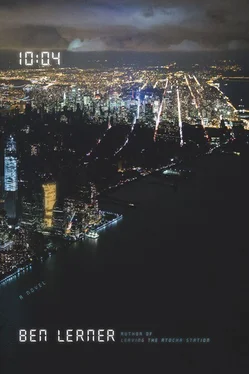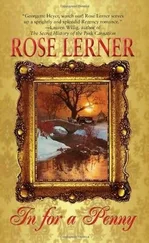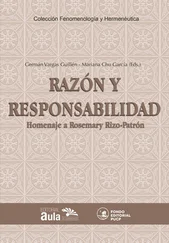“That’s insane.”
“Or maybe he dissected, I don’t know. Rachel told my dad that the funeral would be in Albany, where her father was from, and that she hoped he would go up with her the next day and he said sure and hung up the phone without ever telling her about his mom. Meanwhile, my dad’s own mom wasn’t being mourned properly at all. My grandfather was either in denial or involved with someone else, but either way, my dad and his younger siblings were being served frozen dinners and left to watch Gunsmoke or whatever and there was no service planned of any sort. So my dad just said that Rachel’s dad had died and he was going to Albany for the funeral and my grandfather said, without asking any questions: Fine. He took the train to Albany with Rachel, who wept the whole time — he never talked about his mom — and they eventually arrived at the family home, where the more Jewish side of the family was constantly praying and would be sitting shiva for seven days after the burial. It was a giant house and he was given a guest room and he sat up all night staring at the ceiling with occasional bouts of weeping from other parts of the house still audible late into the night as he tried to imagine where his mother’s body was, although I might be making that detail up.” I raised my hand to get the waitress’s attention from across the bar and then raised my empty glass.
“Guess what his job was the next day at the funeral? They gave him smelling salts and he was supposed to go around and revive any of the women who passed out or got weak from weeping. My dad, at twenty, secretly mourning his mother, walking around a funeral, which his mother would not have, dry-eyed and holding some kind of chemical compound under the noses of people whose ululations were causing them to swoon. I had heard this part of the story before, although it had never struck me so powerfully as it did that night as we drove home through the sleet for Daniel’s funeral, but then my dad started to tell me the part he’d never told me before.” My drink had arrived and I tried it; it was sweeter this time. Alex expressed the intensity of her attention by not touching her water. She had an ability to hold herself so still that it became a form of gracefulness.
After the funeral, when I left the family to sit shiva in that giant house in Albany, my dad told me, I had to take a train to Penn Station and then another train to D.C. I arrived at Penn Station without incident, although it was snowing heavily, but then in Penn Station there was some kind of problem with the train, no doubt due to the weather. I remember how cold I was: I was wearing my one suit, which I’d worn to the funeral, but my winter coat didn’t go with a suit, so I’d left it at home. There was an enormous line for the D.C. train — I’d never seen a line that long for any train at Penn Station — and it took forever for me to work my way to the platform. When I reached the platform, it was chaos: crowds, shouting. It turned out that two previous trains had been canceled due to ice on the tracks or something so there were all of these people desperate to get on this one, the last train out. They had even added extra cars — I could see them and they looked archaic, like decommissioned cars from the nineteenth century — to try to accommodate the overflow of passengers. I could picture all of this as we drove to Topeka, I said to Alex, with unusual vividness, maybe because the windows were fogged up and so little of the landscape was visible to distract me. And maybe I could picture it so vividly across from Alex because of the bar’s anachronistic décor. I imagined the clock at Penn Station as my dad tried to get home, probably inserting an image from Marclay’s video. But even so, my dad said to me, by the time I reached one of the car doors where there was both a man collecting tickets and a police officer trying to keep everybody calm, I was told that the train was full, that there were simply no more seats, that I’d have to stay the night in New York and catch the first morning train.
At first, my dad said to me, his eyes fixed on that part of the highway illuminated by his high beams, the sleet turning to snow in the headlights, I felt relieved. I didn’t want to go home to the house without my mother and face the bizarre denial of my dad and my confused younger brothers around whom I kept trying to act like everything that was happening was normal. But then I started getting — I remember this surprised me — really angry, and I said to the ticket collector with such intensity that he turned and looked at me, as did a couple of the other people around us: I am getting on this train . I think I sounded like a lunatic. I’m afraid that’s not possible, son, the ticket collector said after looking me over, my dad said to me, I said to Alex, and maybe it was the fact that he said it kindly, and that he said “son,” but the next thing I knew, I burst into tears there on the platform. I mean, I really lost it, tears and snot and everything, standing there freezing in my suit, maybe still with smelling salts in my breast pocket, all the repressed emotion, all the emotion I’d been planning to share with Rachel when I’d called her the day our parents died and held in during her father’s funeral, all of it started to surface. And then I said to the conductor: Please, I said, please: my mother is dying. I have to get back. I have to get back in time, please, I kept repeating. My mother is dying. And I felt as if it were true: as if she were dying and not dead, or as if the train could take me back in time.
I drank my drink and Alex drank her water in silence for a minute and I placed my hand on the table so it was touching hers in order to communicate that I was also thinking about her mom. Then my dad was quiet in the car, nothing but the sound of the windshield wipers, as if that were the end of the story, so finally I said: And then? And then, he said, as if it were an afterthought, they let me on the train, one of the decommissioned cars, and an older woman who had overheard my outburst on the platform ended up sitting beside me. And I remember she bought me tea and cookies from the food car and I slept a big part of the ride back on her shoulder. I remember her saying every once in a while: Your mom is going to be just fine.
I finished my drink, accidentally swallowing some mint. “We were going the wrong direction, by the way.”
“What?”
“My dad drove us an hour into Missouri; he was so caught up in the story, he missed the exit for Topeka.”
“Maybe he was driving toward D.C.”
Then, voluble from the alcohol, I told her about Noor and Mrs. Meacham and she told me a story about her mother she made me swear I’d never include in anything, no matter how disguised, no matter how thoroughly I failed to describe faces or changed names.
* * *
A circuitous path leading through several museum buildings allows the visitor to trace the evolution of vertebrates, a walkable cladogram with alcoves on either side of the path displaying fossils of species that shared physical characteristics — e.g., “four limbs with movable joints surrounded by muscle” (tetrapods). I’d paid almost fifty dollars for two tickets to the American Museum of Natural History so that Roberto and I could tour the osseous remains, could track the evolution of new traits, a field trip I’d been promising him for many months and had finally proposed to his mother when I handed him off one afternoon after tutoring; she either forgot about my offer or considered it for several weeks before letting me know through Aaron which Saturdays — Sundays were taken up with church and family — were workable. I’d called her to finalize arrangements: I would meet her and Roberto at the subway stop nearest their apartment, the D on Thirty-sixth in Sunset Park, and he and I would travel together, transferring to the C at West Fourth, to the Museum of Natural History on the Upper West Side. We’d spend several hours at the museum, assuming his attention held, then I’d take him out to lunch, mindful of his allergies, and return him to the family home in the late afternoon. Roberto’s older sister, Jasmine, was initially planning to join us — primarily, I assumed, to make Anita feel more comfortable — but, Anita explained to me when we exchanged holas at the Thirty-sixth Street stop, Jasmine had had to work an unexpected shift at the Applebee’s in Flatbush. Anita seemed a little nervous as she transferred Roberto, tremulous with excitement, to my care.
Читать дальше










